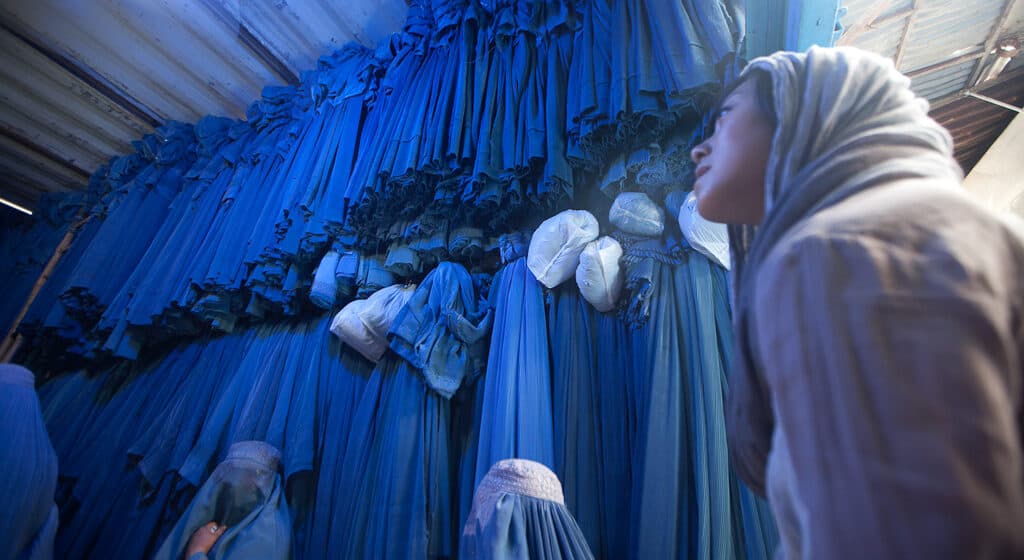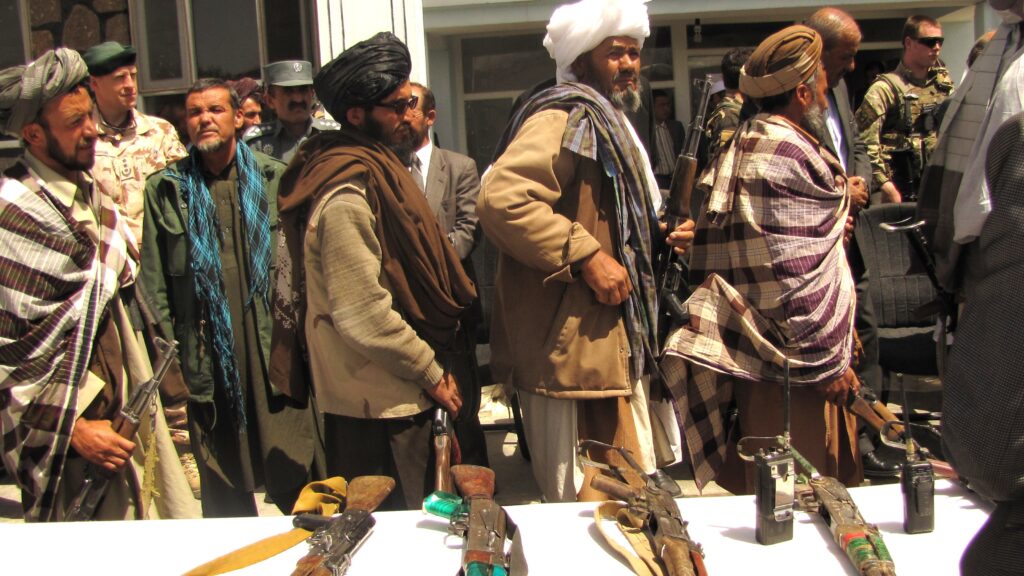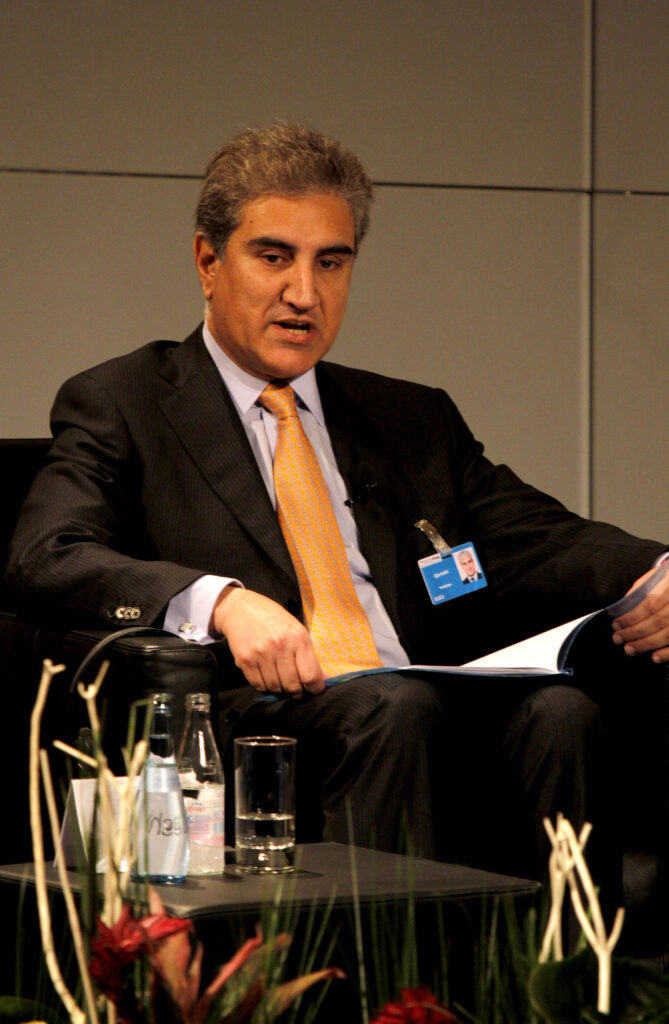It is too late in the day for the United States to reassess its ties with Pakistan especially after the military and diplomatic debacle it suffered in Afghanistan, now a more war-ravaged nation under the control of Taliban. An irony of sorts has emerged with Afghanistan and Taliban being indistinguishable as far as the rulers and the ruled are concerned. This new regime is the only military force and the only government. That is an inescapable reality for the people of the Central Asian state and the rest of the world. At the same time, there are many distinctions between the Taliban and Afghan citizens because the masses there know what this recently returned Islamist faction represents and how it operates.
That too, with dark ways incompatible with modern times and values.
Much change has taken place since the last rule of the Taliban from 1996 to 2001. During these 20 years, Afghans have become better educated, more exposed to the world, aware of their rights and the importance that the world attaches to its diversity and the need for inclusive ruling dispensations.
The US is at fault for not having stabilized Afghanistan, but Pakistan did use American money to encourage and empower Taliban all these years, thus torpedoing Washington’s goals in the country.

Where does Pakistan fit in?
Pakistan helped Taliban in doing and achieving what it did in Afghanistan in the run up to the exit of American forces before August 31. Without active support from east of the Durand Line, the Taliban would not have achieved anything substantial. A gradually brazen comeback surely wouldn’t have been possible without Pakistan’s external intelligence agency, the ISI (inter-services intelligence).
The Taliban’s military and intelligence and the war-time strategies were drawn by the spy agency.
Hence, Pakistan and Taliban are indistinguishable.
Their closeness has become clearer, which in any case was never in doubt, ever since the formation of the interim government in Afghanistan. The way Islamabad has been pleading for aid and assistance to the Taliban ruled Afghanistan in a firm bid to get international legitimacy and recognition for the new dispensation hasn’t gone unnoticed.
There are three underlying factors.
One, Pakistan wants to justify the Taliban takeover as a legitimate action that had the mandate of a large population of the country. Secondly, it is aiming to garner international support for the Taliban to help it avert the inclusivity clause which the international community insists upon. An inclusive Afghan government in Afghanistan, where the Taliban has to share power, with others doesn’t serve Pakistani interests. The dilution in Taliban’s powers would directly affect Pakistan’s ability to influence dynamics with the neighbouring country India. Thirdly, of course, Islamabad is keen that New Delhi steer clear of Afghanistan. An inclusive government will result in India resuming its outreach to the Afghan people.
This is anathema to Pakistan’s goals in the region.

The US Secretary of State Antony Blinken told the House of Representatives Foreign Relations Committee that the “ US would be looking at its relationship with Pakistan in the coming weeks to formulate what role Washington would want it to play in the future of Afghanistan.”
He also underlined, “Pakistan had a multiplicity of interests, some that are in conflict with others.”
Utilizing strategic advantage
In response to the query as to whether there was any move to reassess America’s relations with its South Asian Ally since 1947, Blinken replied quite emphatically, “This is one of the things we’re going to be looking at in the days, weeks ahead – the role that Pakistan has played over the last 20 years but also the role we would want to see it play in the coming years and what it will take to do that.”
This was a diplomatic lexicon but the meaning of it was no lost on anyone, particularly the Pakistani establishment. Afghanistan’s eastern neighbour is well aware that the US still controls International Financial Institutions like the World Bank, IMF. The US Department of Treasury has frozen $9.5 billion because the Taliban is still a banned group liable for sanctions. Without the direct financial aid from Washington, Afghanistan would not be able to survive. A lack of external sources will affect the Taliban’s stability and by extension that of Pakistan as well.
Taking advantage of its geo-strategic location, Pakistan though it became a pivot in center of the world after the return of the Taliban.
The world, it believed, cannot do anything without its support or help. With this advantage, the Pakistani establishment could fuel its anti-India agenda. In a so-called dossier, India was charged with sponsoring terrorism in Pakistan. The Pakistani security establishment claims that the dossier has all the evidence based on indirect sources. That prompted Foreign Minister Shah Mehmood Qureshi to rebut time and again, “It is not a Pakistani propaganda.”

Though such expressions are used by leaders to detract from the fact that these revelations are indeed propaganda. Pakistan is known for defending and making grandiose claims.
The reset of the US-Islamabad ties has evoked a strong reaction from Pakistan. Islamabad is reiterating the theory that it had already prepared for being scapegoated as a reason for American failure in Afghanistan. Its foreign office said that Pakistan played a “critical role” in facilitating the evacuation from Afghanistan and also helped in de-grading al-Qaeda. It, however, did not reflect on the incident of Al-Qaeda mastermind Osama Bin laden being found in the garrison town of Abbottabad, Khyber Pakhtunkhwa in May 2011. It was but natural for it to justify all its actions to keep the US in good humour. Pakistan now seeks to do the damage control after Prime Minister Imran Khan accused America of “Creating a mess in Afghanistan” and refusing to help the US in setting up military bases to contain terror activities in Afghanistan.
US-China dynamics playing out in South Asia
This new game of diplomacy peppered with bitterness between America and Pakistan will impact the region. First, it has thrown cold water on Pakistani plans to harm India after the fall of Afghanistan to Taliban. It had been undertaking a social media blitzkrieg against India in which the alleged atrocities and human rights violations were at the centre of the discourse. This included selling misinformation to the world on Kashmir. Now Pakistan will have to answer to the international community as to how it has played games with the world and supported a regime that is now unleashing all kinds of horror on the people, especially women and erstwhile officials of the Ashraf Ghani government.
The US and its allies, particularly in QUAD, will be closely watching Pakistan. Since Pakistan is wheeling and dealing, particularly in Kashmir, its actions in the region will come under the intense US scrutiny. That too, not only regarding its actions in Afghanistan but actions towards India. America has a strategic partnership with India and has now become critically important after the Afghan debacle. Pakistan and China joining hands to marginalize India and the US, in and outside the conflict-torn state, only bolsters ties between the latter two countries. Indian and American interests have converged further on the common strategic ground where among other things counter-terrorism has assumed renewed importance.
One of those interests include exposing Pakistan regarding Afghanistan and Kashmir.
Arun Joshi is a Senior Journalist, Political Analyst based in Jammu and Kashmir. He has authored four books, including, “Eyewitness Kashmir: Teetering on Nuclear War”. He has worked with Hindustan Times, The Times of India, The Indian Express and The Tribune, and visited several countries to deliver lectures on Kashmir issue and international affairs.
Views expressed are personal

